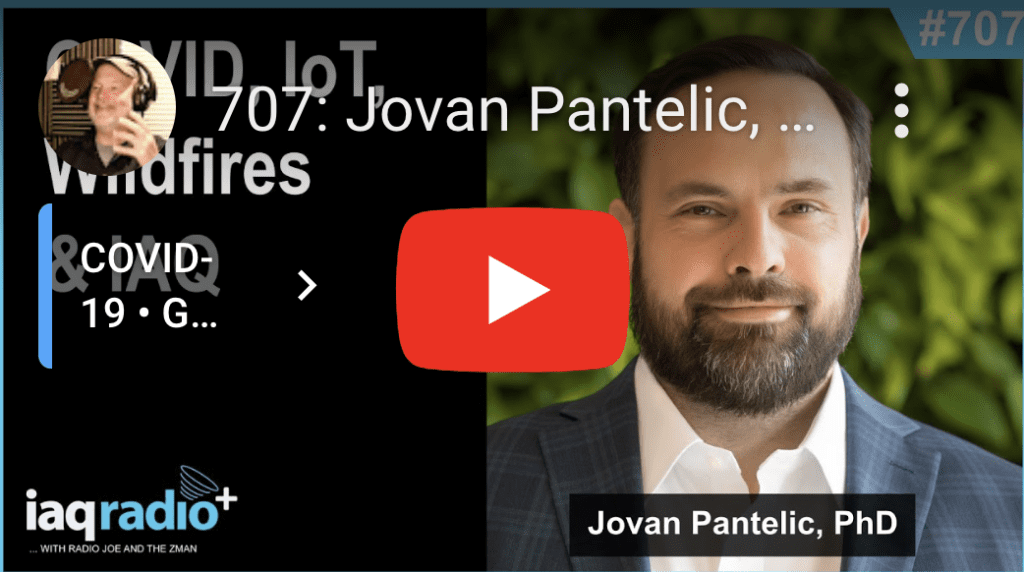Resource Library
IAQ Radio: COVID, IoT, Wildfires & IAQ
Overview
IAQ Radio welcomes Dr. Jovan Pantelic, Ph.D. Research Scientist at WELL Living Lab for a show on COVID, IoT, Wildfires and IAQ.
Quick Links

IAQ Radio welcomes Dr. Jovan Pantelic, Ph.D. Research Scientist at WELL Living Lab for a show on COVID, IoT, Wildfires and IAQ. Dr. Pantelic earned his Bachelor of Mechanical Engineering and his M.S. from the Department of Thermal Engineering at the University of Belgrade (Serbia). He earned his Ph.D. from the National University of Singapore where he studied in the School of Design and Environment, Department of Building.
Dr. Pantelic joined the Well Living Lab in September 2020 after transitioning from his positions as a Professional Researcher at the University of California Berkeley and Lawrence Berkeley National Laboratory, where he was completing COVID-19 related research. Over the past 17 years, Jovan has worked on various topics related to indoor air quality, spanning from the airborne spread of infectious diseases in the built environment to the impact of large-scale episodic pollution events, such as wildfires, on indoor air. For the past seven years, Jovan has worked in the field on Internet of Things (IoT) sensing and is considered as one of the leading experts in the field.
Related Resources
ACEEE: Survey: Marketing and Promoting Electrification Using Behavioral Science
ACEEE surveyed a nationally representative sample of American adults to understand household behaviors and preferences related to home energy use. Results show how to use behavioral science to more effectively market and promote residential electrification.
DOE: National Definition of a Zero Emissions Building
The DOE has developed a National Definition of a Zero Emissions Building—a building that is highly energy efficient, does not emit greenhouse gases directly from energy use, and is powered solely by clean energy.
Efficiency First CA: Calculators
EFCA has new calculators! The Air Leakage Calculator, Duct Leakage Calculator, and SLA Calculator will support your efforts to achieve superior energy efficiency.
